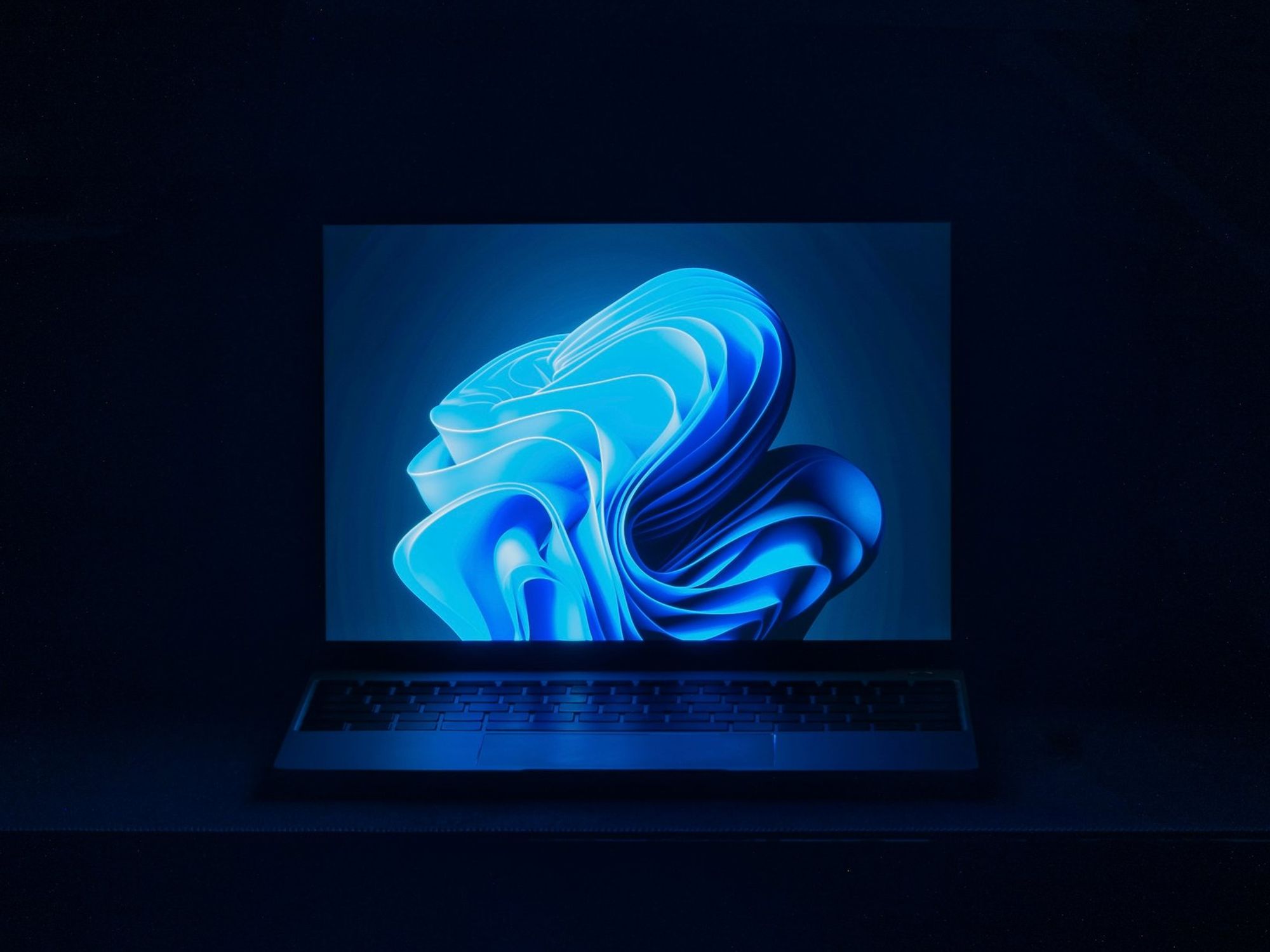Apple blasts 'bureaucrats in Brussels' for blocking free iPhone features, and cautions the UK could be next
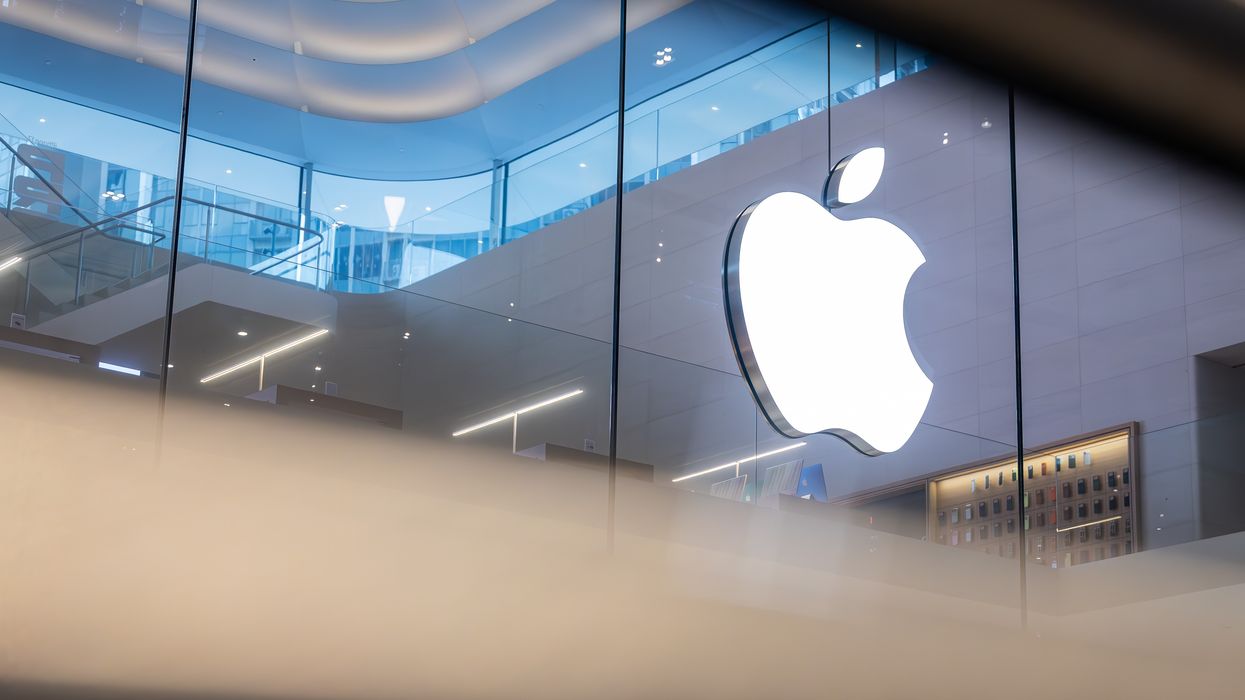
Apple has warned the UK's Competition and Markets Authority watchdog against following the EU
|GETTY IMAGES

Software updates already available in the UK cannot be rolled out across the 27 EU member states
- Apple's Greg Joswiak has openly criticised the EU's Digital Markets Act
- This law includes prescriptive list of do's and don'ts for Apple and five others
- Apple argues that compliance would mean compromising users' security
- It must share the contents of iPhone notifications, including medical alerts
- Apple has paused rollout of some software features, like Live Translation
- Post-Brexit, the UK isn't required to follow the EU's approach
- However, the CMA is considering similar rules, with a decision due next month
- Apple has cautioned EU-style rules will hamper innovation
Don't Miss
Most Read
Cutting-edge new features have been "delayed, watered down", or scuppered entirely by "bureaucrats in Brussels," lambasted Apple's Senior Vice President of Worldwide Marketing, Greg Joswiak, in a discussion with GB News.
Not only that, but deeply personal information — like text messages, emails, and medical alerts sent from your iPhone — could be shared widely with other devices under the European Union's controversial Digital Markets Act.
"We've got millions of our European customers who are pretty frustrated about it. I don't blame them — I'm frustrated too," Greg Joswiak — better known within the company as "Joz" — told us during a meeting at the Apple Park headquarters in California ahead of the launch of its newest hardware.
For those who don't know, the Digital Markets Act (DMA) was devised by the European Commission to impose a list of do's and don'ts on the biggest online platforms, dubbed "gatekeepers", in a bid to stop these brands from unfairly locking in users or squeezing businesses that rely on them.
The six gatekeepers identified by EU lawmakers are: Amazon, Google parent company Alphabet, TikTok owner ByteDance, Meta, Microsoft, and Apple.
The law, which came into force in 2022 but only began to apply last year, has already seen eye-watering fines of €500m (£435m) and €200m (£174m) handed down to Apple and Meta, respectively. Earlier this year, the European Commission adopted two legally binding decisions around interoperability for Apple — stipulating how its iOS platform should work with third-party devices, including other smartwatches and headphones.
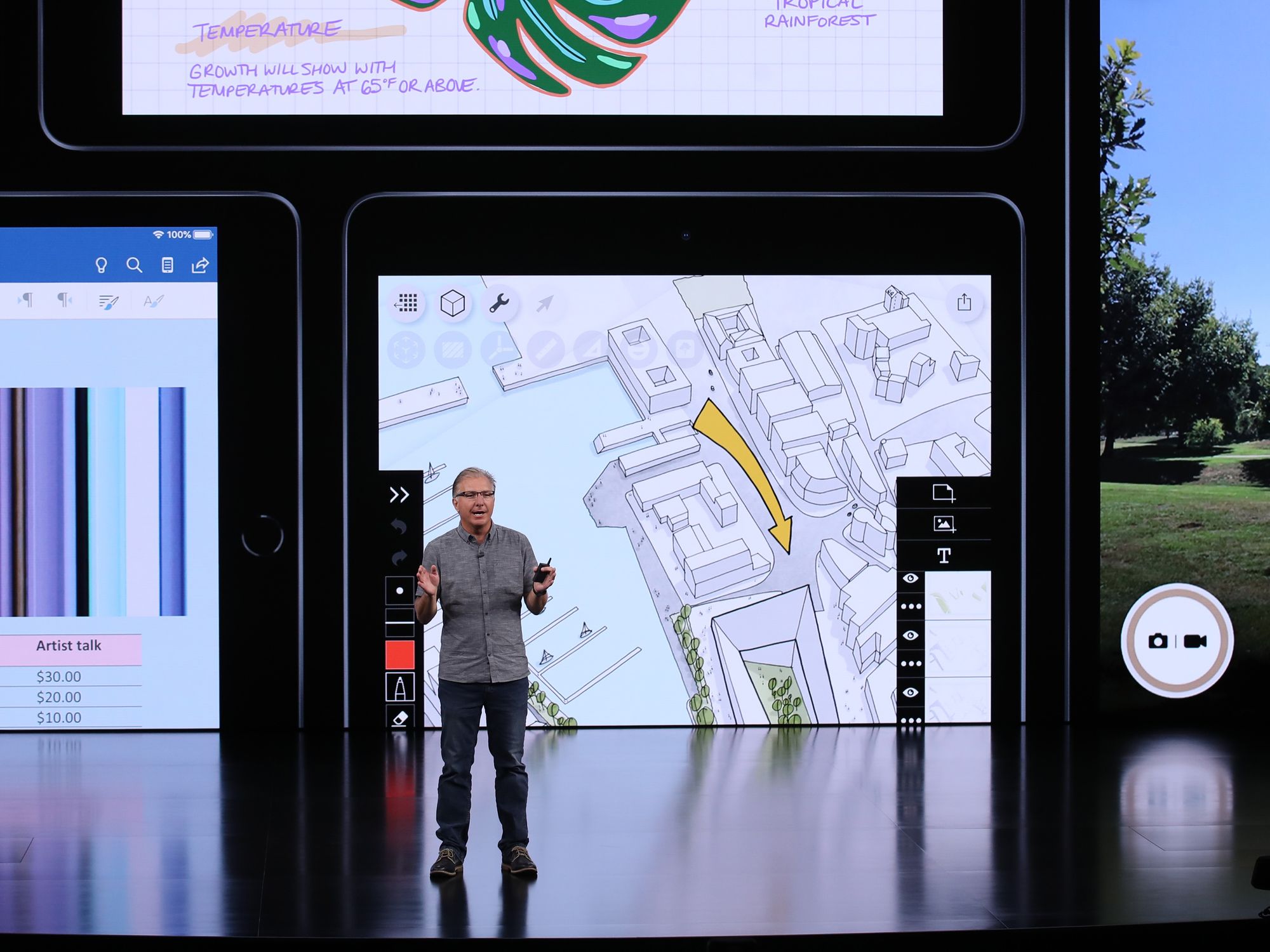
Greg "Joz" Joswiak, who has served as Apple Senior Vice President of Worldwide Marketing since 2020, pictured on-stage during a launch event for the $3.6tn Californian company
|GETTY IMAGES
Or, as Greg Joswiak puts it to us: "Governments are attempting to redesign our products."
It's a direct attack on the so-called "walled garden" approach used by Apple, which is responsible for both the software and hardware of its products. Apple says this enables a unique "magic" from its products — you can securely copy a snippet of text on an iPad and paste it with a keyboard shortcut on your Mac, for example — while EU lawmakers believe this stops rivals from offering the same experience and competing on a level playing field.
An increased level of interoperability sounds fairly reasonable.
After all, why shouldn't a Garmin smartwatch enjoy all of the same features as an Apple Watch when paired with your iPhone? Wouldn't it be better if you could enjoy the same copy-paste functionality between a Windows laptop and an iPhone as those who own a Mac?
Apple's Worldwide Marketing chief admits that interoperability requests "sound good at a very high level," but cautions these one-size-fits-all rules are "rarely good when you get down to how things actually work."
Mr Joswiak warns that users' privacy would be compromised to comply with these requests from EU lawmakers, who have pushed for Apple to share a comprehensive history of Wi-Fi networks joined, as well as "the complete contents from notifications that come to the device", including text messages, email, and even medical alerts.
"If it comes across as a notification, [the EU] wants us to make it available to anybody," stressed the US executive, who has worked at the Californian firm for over 39 years. Apple isn't holding back this information for itself — the company doesn't have access since everything is stored on-device.
"It's not even available to us," Mr Joswiak explained, "This type of information is just so sensitive, we don't have access to it. We've engineered our systems and our architecture to keep it private."
According to Apple, European lawmakers won't even allow it to add conditions to restrict some of the security and privacy risks of these requests. Any company or developer that makes a request will be able to access the information stored on your device under the rules of the DMA.
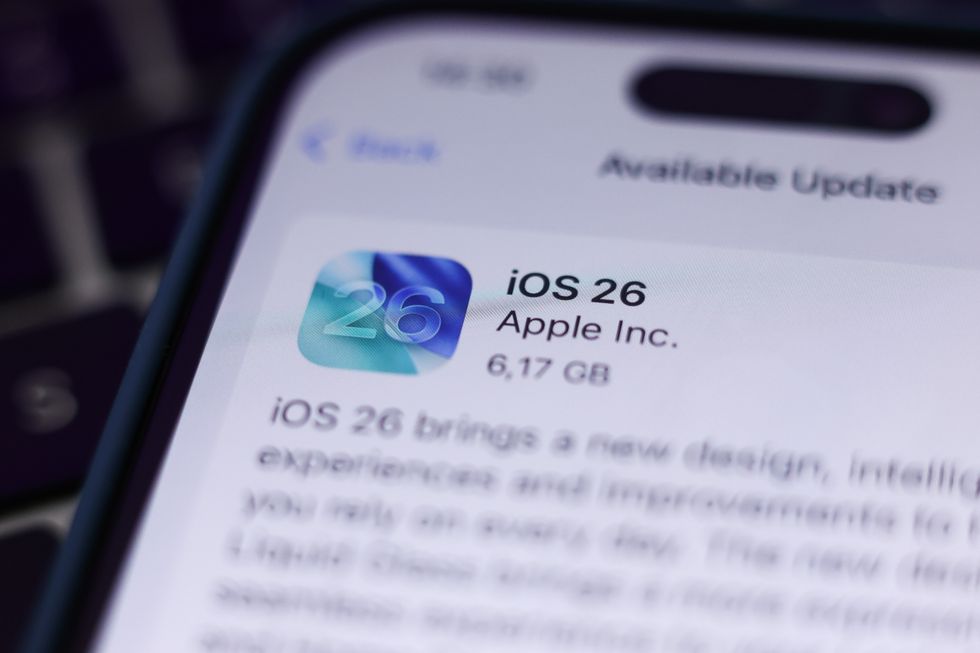
Free software features introduced with iOS 26, the latest operating system update for iPhone owners worldwide, remain unavailable in Europe due to restrictions imposed by the Digital Markets Act
|GETTY IMAGES
Apple believes this no-strings-attached approach to data requests in the name of interoperability "has undermined privacy and security of users in a way that is unlike anything we’ve ever seen,” Mr Joswiak said.
Apple had bitten its tongue about the Digital Markets Act — at the request of the regulator, it explained. However, the iPhone manufacturer is increasingly outspoken against EU-style regulation, which it believes is bad for users' privacy, innovation across its lineup of devices, and developers.
Just as the $3.6tn company took on the UK Government over its recent demand to compromise the security of users' data with a "back door" for law enforcement (and won), and went toe-to-toe with the FBI over a similar demand to weaken encryption, it's now speaking out about requests from "bureaucrats in Brussels" who want to compromise its approach to security.
For example, the list of Wi-Fi networks joined by your device might seem like a fairly innocuous request that could make third-party devices more useful. But there's a treasure trove of data stashed in this list of Wi-Fi networks, revealing visits to a hospital or fertility clinic — something that insurance companies would like to know about — as well as recent stays at hotel chains, airports, railway stations and other information to map your movements.
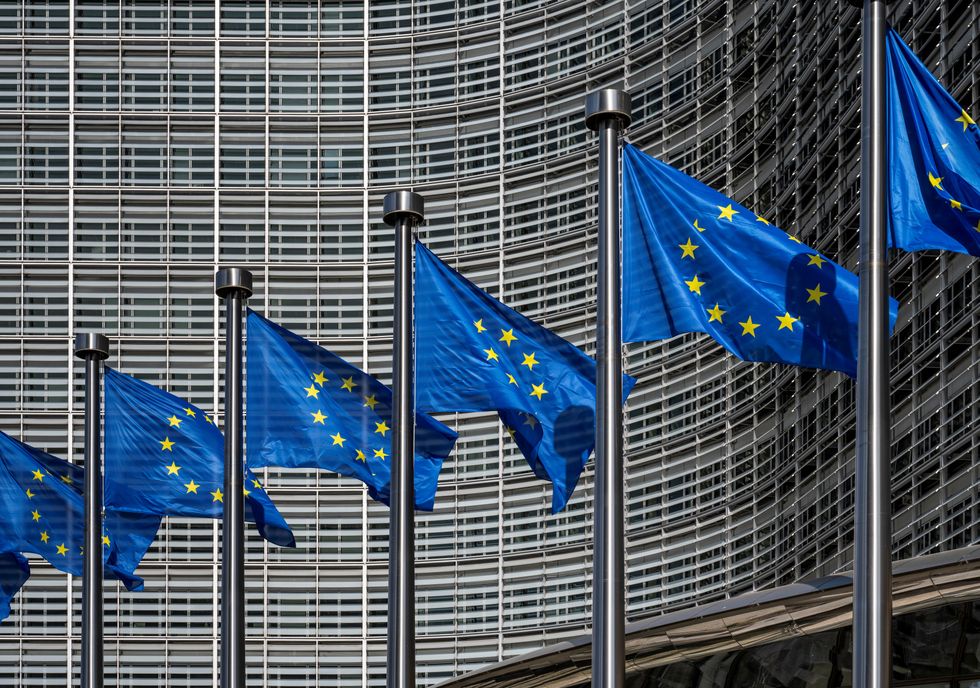
European lawmakers rejected Apple's bid to scrap most of the EU order that required it to make its iPhone work with other devices
|GETTY IMAGES
Since our conversation with Mr Joswiak at Apple Park, the EU has rejected Apple’s interoperability waiver requests covering iOS notifications, proximity pairing, automatic Wi-Fi connection, and more.
An Apple spokesperson said: "The European Commission's actions continue to undermine the privacy and security of users in Europe, threaten the highly integrated experience our users love, and require Apple to give our intellectual property to our competitors for free.
"European regulators are demanding that we hand over highly personal information — for example, forcing us to give third parties access to the complete list of Wi-Fi networks each user has ever joined, along with decrypting the sensitive contents of their notifications.
"At every turn, the Commission has rejected our substantial concerns about mandates that are bad for users privacy and security in order to give a few large competitors unfettered access to Apple's innovations and our users personal information."
The fallout from the Digital Markets Act isn't just limited to the privacy of the information already stored on your gadgets, it's also stymying the launch of new software features.
"At Apple, we pride ourselves on creating things that are simple to use and safe, secure and private," Mr Joswiak said, but went on to explain that because of the DMA, “sometimes we’ve had to decide to even not provide access to something because it’s not safe."
One example is iPhone Mirroring, introduced by Apple last autumn, which lets Mac owners remotely access their iPhone with a single click.
It can be used to respond to notifications from apps that aren't available as a standalone Mac app, or let you drag-and-drop files between the smartphone and desktop PC.
Everything is end-to-end encrypted and both devices exchange cryptographic identities for authentication before the connection is established, with the keys stored in the Secure Enclave — a dedicated subsystem of Apple's custom-designed chipset — to prevent unauthorised access.

iPhone Mirroring, introduced last autumn, lets you drag-and-drop files to and from your smartphone, launch iOS apps or answer messages, from a windowed application on a Mac computer
| APPLE PRESS OFFICEIt's a nifty feature for those who own a Mac and iPhone. But one year on, it's still not available in Europe.
That's because EU lawmakers believe the same functionality should be possible with an iPhone and a popular brand of Windows 11 laptop, like an HP or Dell.
Likewise, the ability to translate conversations in real-time via AirPods Pro, available as a free software update for those with compatible 'buds from Apple, and at launch with the new AirPods Pro 3, is now accessible for millions of people in the UK ...but not in neighbouring Europe.
According to Apple, the issue stems from its privacy-focused approach, which has engineered most of this functionality to take place on-device. This means Apple doesn't even have access to the information on your device, including the content of any conversations translated via AirPods Pro, or "Preferred Routers," an AI-powered feature in Apple Maps that learns your common routes to frequently-visited destinations, like home or work and will proactively alert you about potential delays or issues before you leave, for example.
"This is what happens when you say that these things have to be interoperable on day one or you can't ship them," Greg Joswiak explains. It's possible European users will get to enjoy these features in the future as Apple engineers and lawyers figure out what's possible in the eyes of the law, but iPhone owners living in countries covered by the Digital Markets Act are on a slower track when it comes to the latest software features.
It comes as the UK's Competition and Markets Authority (CMA) is considering tougher EU-style rules, which it claims will boost competition for UK businesses and choice for consumers. Following the UK's departure from the European Union, it's able to determine its own rules so there's no obligation to be in alignment with the DMA.
In a statement shared ahead of the final decision next month, Apple argued the CMA's approach "undermines the privacy and security protections our users have come to expect, hampers our ability to innovate, and forces us to give away our technology for free to foreign competitors."
An earlier study from the CMA, published in 2021, found that Apple and Google dominated mobile ecosystems across operating systems, app stores, and web browsers with software like Safari and Google Chrome. It concluded that these two companies were in a position to effectively set the rules on how mobile browsers worked on their devices.
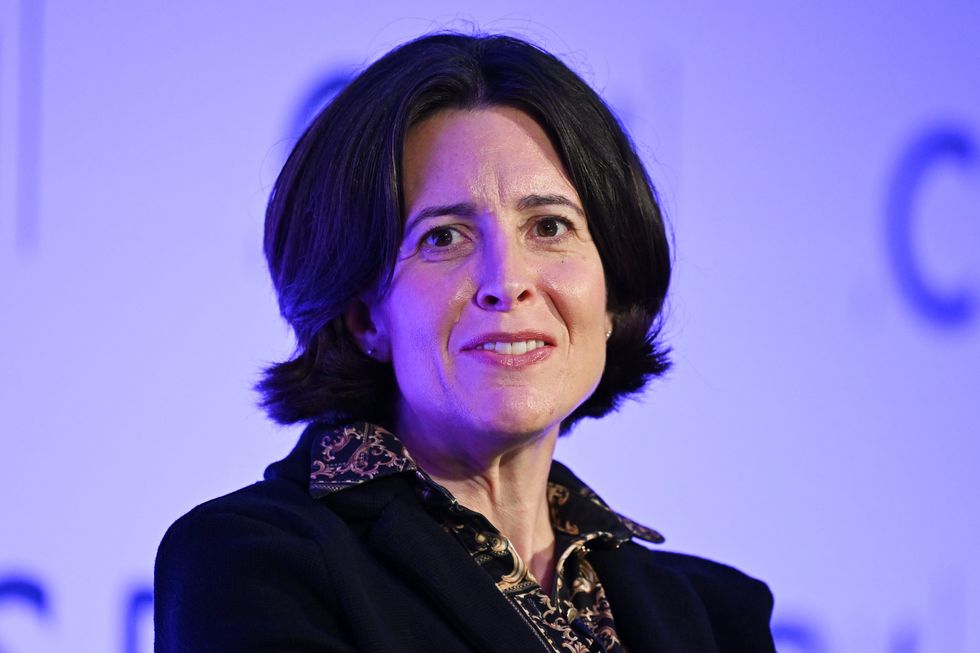
Sarah Cardell, Chief Executive of the Competition and Markets Authority (CMA), pictured speaking during a panel discussion at the Annual CBI Conference
|GETTY IMAGES
Around 90% to 100% of UK mobile devices run on Apple or Google’s mobile platforms — an “effective duopoly”, according to the CMA.
Chief Executive of the regulator, Sarah Cardell said: “Apple and Google’s mobile platforms are both critical to the UK economy – playing an important role in all our lives, from banking and shopping to entertainment and education. But our investigation so far has identified opportunities for more innovation and choice.”
She added that action needed to be taken swiftly.
“Time is of the essence – as competition agencies and courts globally take action in these markets, it’s essential the UK doesn’t fall behind,” she said.
LATEST DEVELOPMENTS
- iPhone Air review
- iOS 26 ruining your battery life? Apple just revealed why
- Microsoft admits millions of PCs will be at 'risk of malware' in 30 days
- Record numbers download VPNs in wake of Online Safety Act
- AirPods Pro 3 review
Potential measures outlined by the CMA include action on app stores, making the app review process fair and transparent for developers, and allowing smartphone users to “steer” away from app stores to make purchases.
The CMA will also look to give app developers interoperable access to Apple functionality so they can create competitive products and services. It also wants to address the restrictions that Apple places on digital wallets so other financial technology firms can compete, while allowing smartwatches and headsets to connect seamlessly with mobiles.
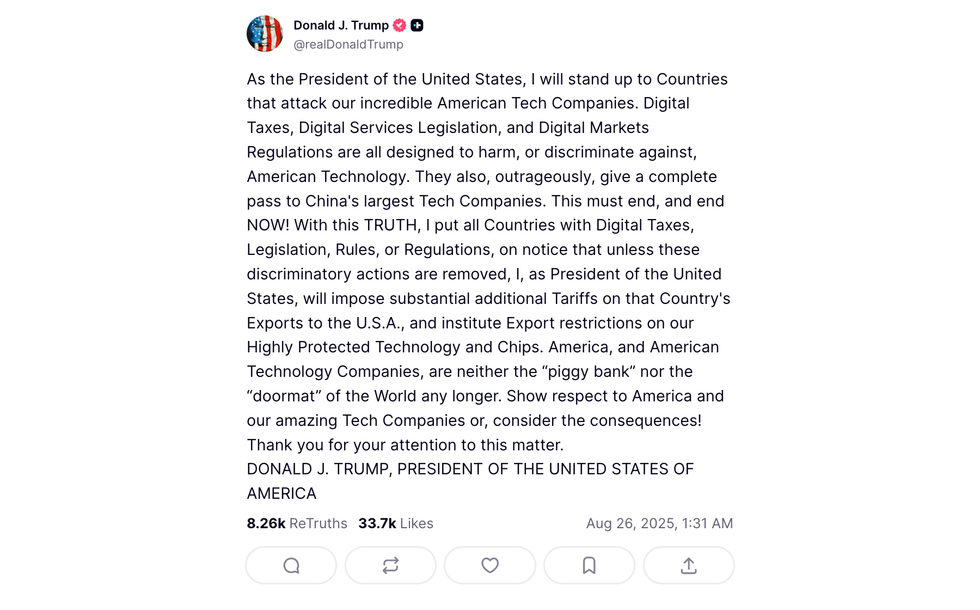
US President Donald J Trump has spoken out against nations that pass regulatory measures "designed to harm, or discriminate against, American Technology"
|TRUTH SOCIAL
But the CMA has stopped short of some interventions, such as forcing Apple to allow alternative app stores.
It comes days after a record £150bn investment from US technology companies signed by US President Donald Trump and Keir Starmer last week. The 47th US President has previously warned against regulatory measures from countries "designed to harm, or discriminate against, American Technology".
In a post on this Truth Social platform last month, Mr Trump demanded countries "show respect to America and our amazing Tech Companies or, consider the consequences!"
Our Standards: The GB News Editorial Charter
More From GB News










